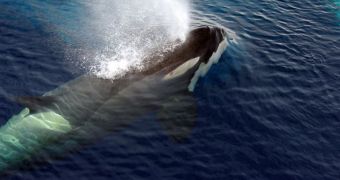This March 31, the International Court of Justice, i.e. the primary judicial branch of the United Nations, is expected to rule on Japan's whaling program. Specifically, it is to say whether or not this program constitutes a breach of the International Whaling Convention, and should therefore not be allowed to continue.
The country that brought Japan to court and argued and its whaling fleet had no business hunting whales in the Southern Ocean is Australia. Thus, it was back in 2010 when Australia addressed the International Court of Justice in The Hague and said that Japan's whaling program was being conducted under false pretenses.
What is making Australia hot under the collar is the fact that, despite an international whaling moratorium implemented in 1986, Japan is still hunting whales in the Antarctic. The country is able to do so thanks to a loophole in present legislation concerning whaling activities.
More precisely, Japan maintains that it is not tracking down and slaughtering marine mammals for commercial purposes, but for scientific research. Since the International Whaling Convention allows unlimited whaling as long as the goal is research, the country can go ahead and kill all the marine mammals it wants. ABC News informs that, by saying that it is carrying out whaling activities purely for research purposes, Japan has butchered some 10,000 animals since 1988 until present day. Interestingly enough, it often happens that, despite the fact that these marine mammals are hunted and killed in the name of science, their meat ends up on Japanese plates.
Australia is convinced that Japan's whaling program has little to do with research and very much to do with commercial considerations. It is therefore asking that the International Court of Justice in the Hague move to protect whales swimming in the Southern Ocean by ruling against it.
Green group Sea Shepherd agrees with Australia, which is why members and the supporters of the organization have been following Japanese whalers around in the Southern Ocean for several years now, and doing their best to keep them from killing the marine animals that crossed their path.
As was to be expected, Japan does not see things quite like this. On the contrary, it a recent interview with the press, lawyer Payam Akhavan made a case of how the country's whaling program was not in breach of the International Whaling Convention, and stressed that Japan put an end to its commercial whale hunting activities following the moratorium that came in place in 1986.
It is only a matter of hours until the International Court of Justice goes public with its decision on the matter at hand, so stay tuned for more information.

 14 DAY TRIAL //
14 DAY TRIAL //